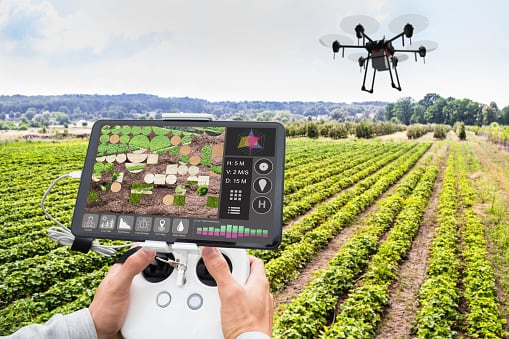Unitatem CULTURA is a proprietary ceramic alloy developed by JAH Cultura. The material naturally generates a field that has been shown to enhance water, soil, and even cell growth.
CEO Tan Chong Hui explained to AgTechNavigator that the effects of Unitatem CULTURA was most evident in how it affects water.
“In the case of water, the effect is that it’s able to decluster water molecules and it can be seen under a nuclear magnetic resonance machine. Under this machine, you are able to see a slight shift in hydrogen and oxygen molecules, which indicates the declustering effect.
“What this does is that it improves the bioavailability of the water itself. This means more nutrients are able to be absorbed into the plant. That’s why we see better growth.”
According to the firm, the wave itself is non-ionising but it’s able to penetrate materials.
Research conducted by Republic Polytechnic's Agriculture Technology laboratory reported an increase of 21.42% in commercial yield when bokchoy seeds were treated with Unitatem CULTURA.
Furthermore, the treated water showed an increased yield of 18.5% under laboratory conditions.
An all-agri solution?
Using the material, the company has fashioned a trio of gardening tools including a seed enhancement capsule, soil peg, and watering spray to help improve the growth of plants.
It has also adapted the products for commercial use, which is easy to do as the technology does not require power in its application, Tan highlighted.
“No power and no chemicals. We're able to aid the overall health and production of the agricultural sector without introducing chemicals into the environment. That’s as green as we can go.”
He added that the firm is able to customise its products to specific requirements without altering the existing farm infrastructure.
JAH Cultura has worked with various partners such as organic farmers and hydroponic farmers to determine the efficacy of Unitatem CULTURA.
“We have seen very clear examples of plants growing faster and giving them better yield results,” said Tan.
Moving forward, the company is exploring how the material can benefit livestock. Most recently, it partnered with a local fish farmer and discovered how its treated water could benefit grouper farming.
“One of the initial tests was putting sick groupers in treated water. Usually, when the groupers get sick, they are left to heal naturally without any antibiotics, steroids, or chemicals. This takes a period of three to six months. In our treated water, they saw that a 10-day period was enough,” said Tan.
This partner is now using the technology across 4,700 tonnes of seawater and has reported an improvement in the mortality rate.
“In the past, they would have three to four deaths every two weeks. After deploying the tech, it’s zero to one,” said Tan.
JAH Cultura is keen to work with more partners across the agricultural sector to find out how its technology can benefit different crops and livestock.
“Our vision is to contribute to the overall food production of the world and raise it by 5% to 10%. Not just in fruits and vegetables but also in animal husbandry. We are looking for good partners that are willing to work with us and share their data,” said Tan.
The firm also sees opportunities in the hobbyist gardening and fishkeeping sectors but will focus mainly on its business-to-business arm.
It has adopted a utility model for this business where customers will pay an initial deployment cost followed by a monthly fee.




